
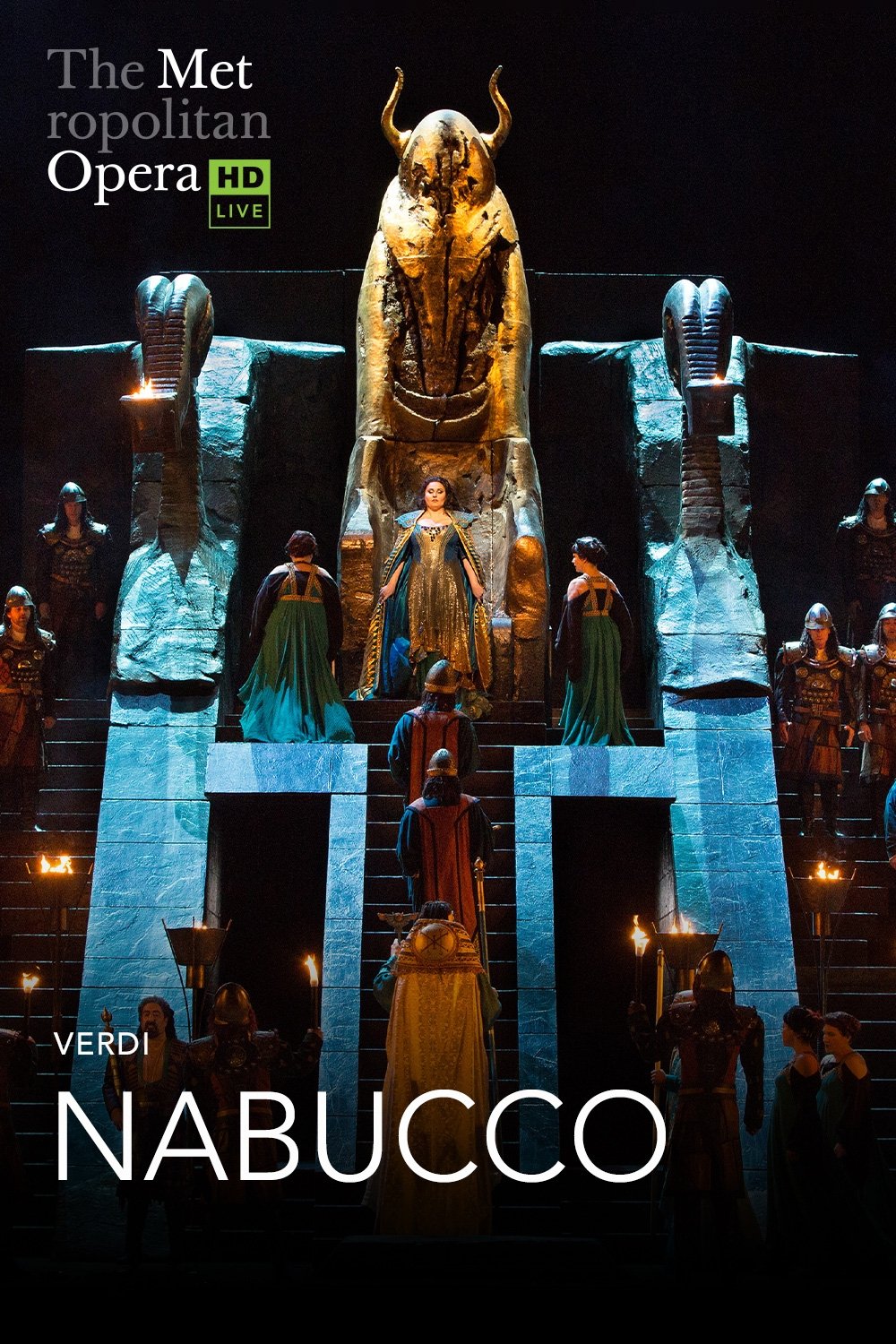
The success of Verdi’s third opera, a stirring drama about the fall of ancient Jerusalem at the hands of Nebuchadnezzar (Nabucco), catapulted the 28-year-old composer to international fame. The music and Verdi himself were subsumed into a surge of patriotic fervor culminating in the foundation of the modern nation of Italy. Specifically, the Chorus of the Hebrew Slaves ('Va, pensiero'), in which the Israelites express their longing for their homeland, came to stand for the country’s aspirations for unity and that exciting era in Italian history, the Risorgimento, or 'Resurgence'.
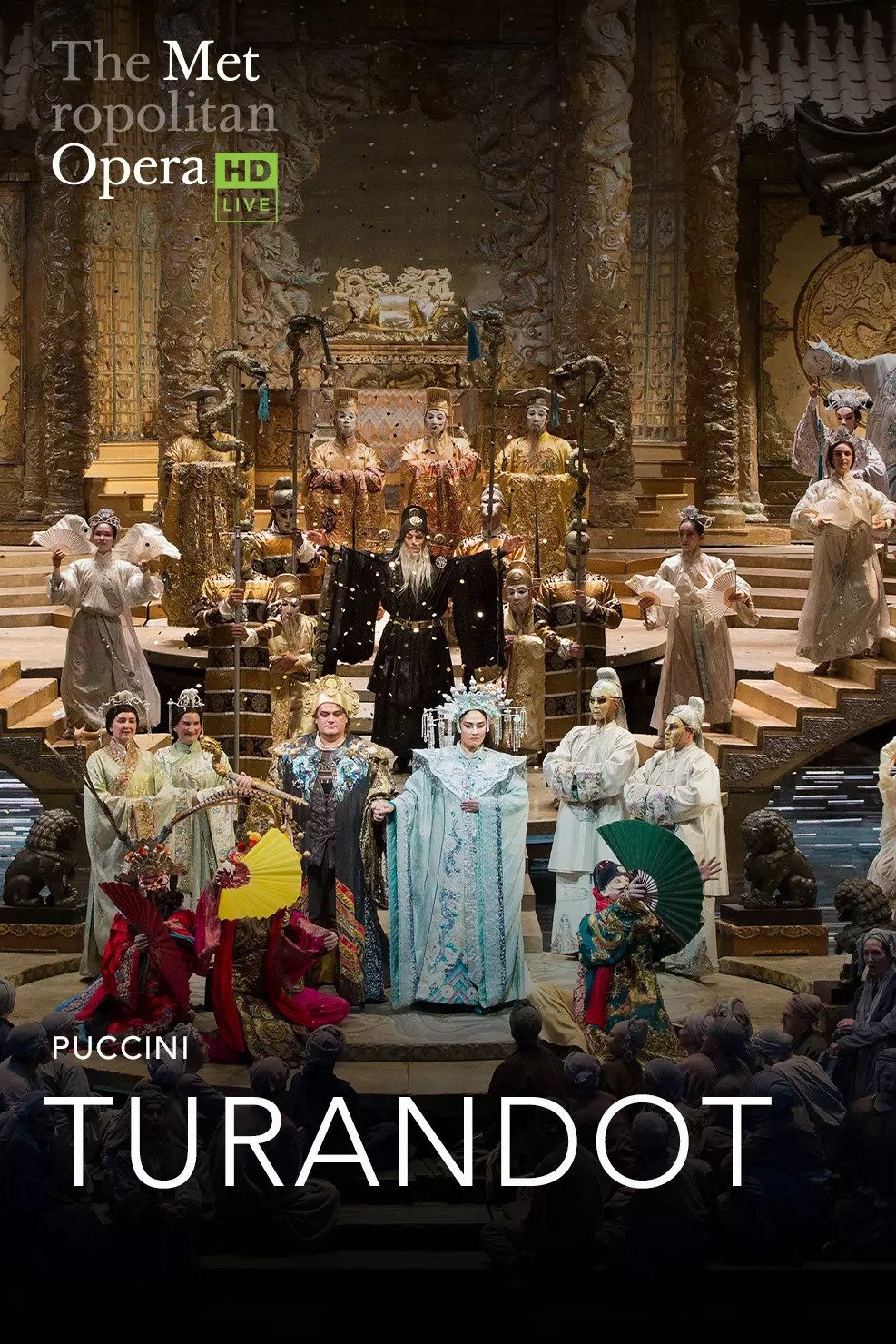
Giacomo Puccini’s final operatic masterpiece, Turandot, is one of the repertory’s most extravagant spectacles. And in the Met’s production, by legendary director Franco Zeffirelli, this tale of an icy Chinese princess and the mysterious prince vying to win her love takes on larger-than-life proportions. This performance, recorded as part of the company’s series of Live in HD cinema transmissions, stars Ukrainian soprano Liudmyla Monastyrska in the formidable title role, going head-to-head with tenor Yonghoon Lee as Prince Calàf, who must correctly answer Turandot’s three riddles or forfeit his head. Maestro Marco Armiliato, a veteran of nearly 500 Met performances, takes the podium to lead a stunning cast, which also features soprano Ermonela Jaho as the self-sacrificing Liù and bass-baritone Ferruccio Furlanetto as Calàf’s father, the blind king Timur.
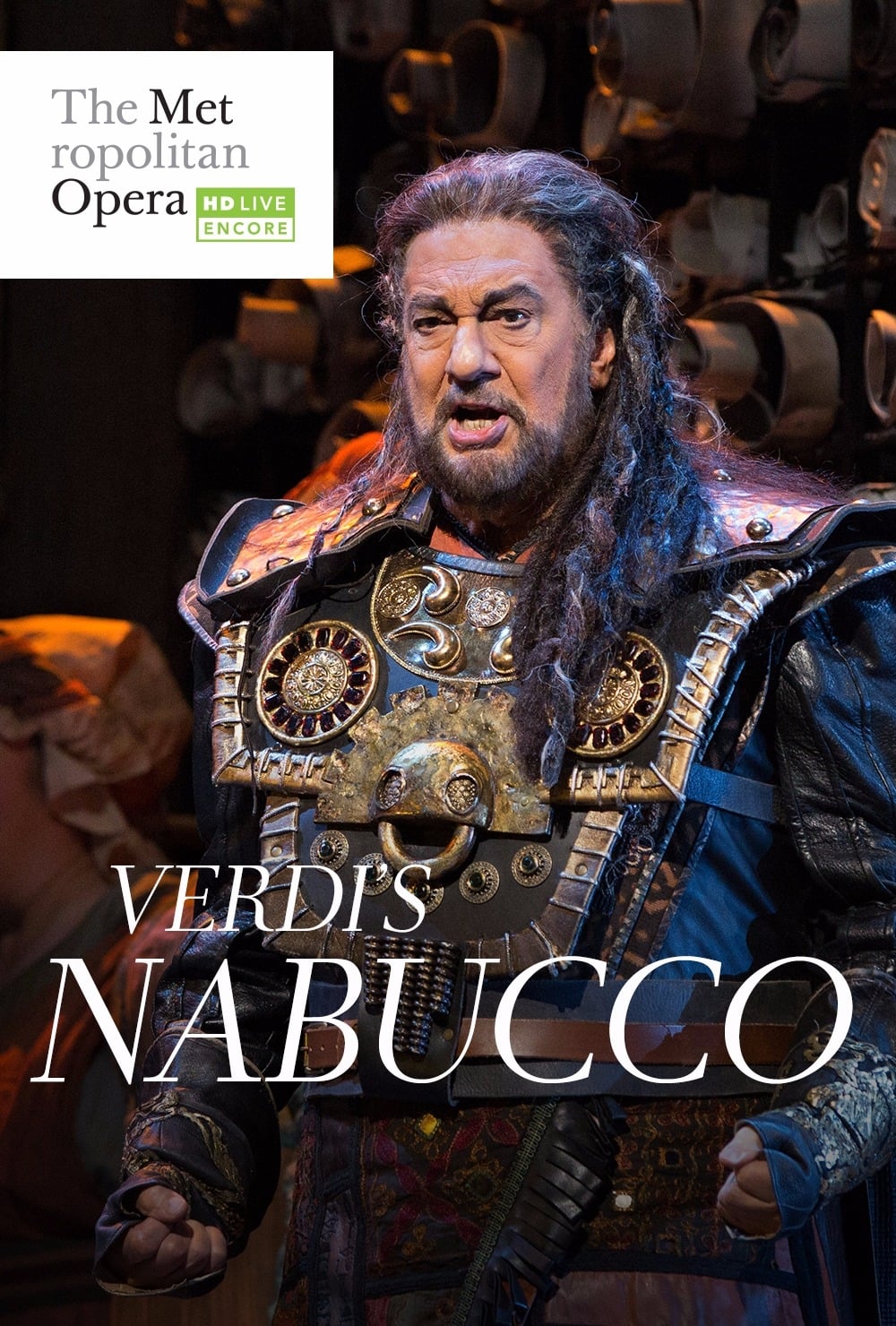
The legendary Plácido Domingo brings another new baritone role to the Met under the baton of his longtime collaborator James Levine. Liudmyla Monastyrska is Abigaille, the warrior woman determined to rule empires, and Jamie Barton is the heroic Fenena. Dmitri Belosselskiy is the stentorian voice of the oppressed Hebrew people.
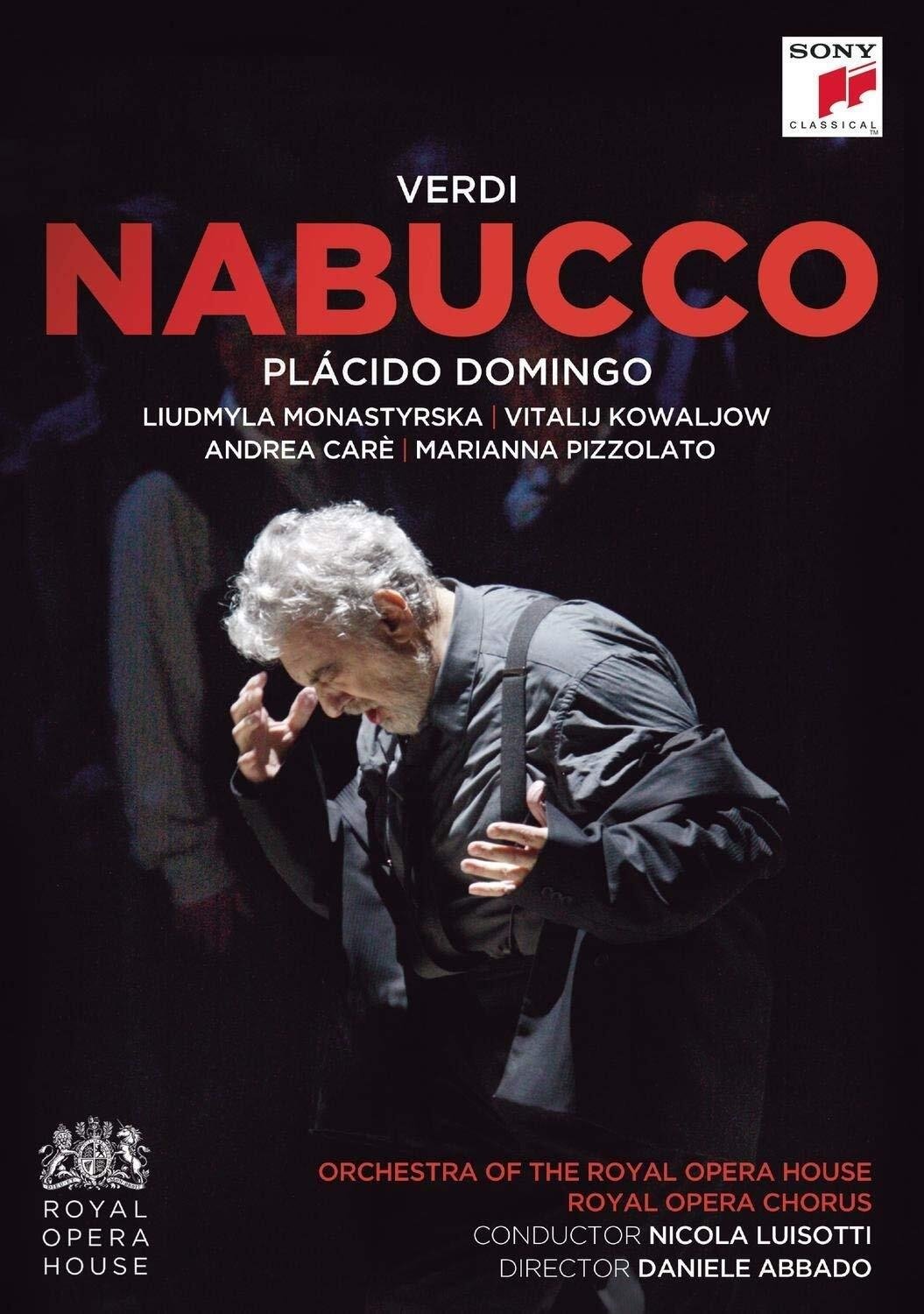
NABUCCO may be Verdi's first masterpiece, and not just because of that amazing Chorus of Hebrews which is justly beloved by everyone who hears it. Dramatically, this opera is tightly constructed, with believable characters in an intense conflict over values and beliefs. And Verdi's music, however early in his career, however distant from triumphs like LA FORSA DEL DESTINO or AIDA, is highly animated, revealing inner turmoil and outer passions with beauty and economy. The ensembles are especially impressive, building to satisfying heights of emotional release for the singers and the audience. And Placido Domingo is a wonder to behold and hear. Even though his original voice was baritone, which he managed to transform into a tenor voice, he doesn't SOUND like a baritone to me. B-U-T his performance is so committed, so deeply interfused with Verdi's music, so generously integrated to the younger singers around him, that the waters part.
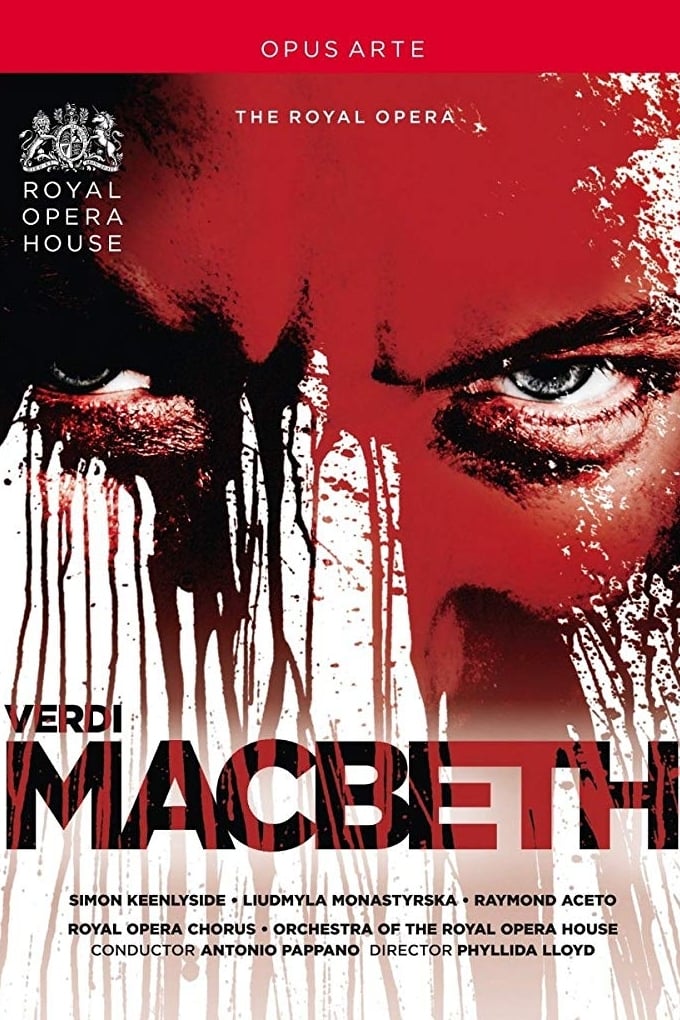
Macbeth, the Thane of Glamis, receives a prophecy from a trio of witches that one day he will become King of Scotland. Consumed by ambition and spurred to action by his wife, Macbeth murders his king and takes the throne for himself.
Monastyrska made her debut with the Ukraine National Opera as Tatiana in Tchaikovsky's Eugene Onegin in 1996 and became a principal soloist with the company in 1998. There, and at the Mikhailovsky Theatre in St. Petersburg, she sang the title roles of Verdi's Aida and Ponchielli's La Gioconda, as well as Amelia in Verdi's Un ballo in maschera, Lisa in Tchaikovsky's The Queen of Spades, Nedda in Leoncavallo's Pagliacci, and Santuzza in Mascagni's Cavalleria rusticana. In 2010 she appeared successfully on short notice in the title role of Puccini's Tosca at the Deutsche Oper Berlin, which led to her Italian debut at the Festival Puccini in Torre del Lago, Italy, under the conductor Alberto Veronesi.[2] In February 2012 she appeared as Aida at La Scala, Milan
By browsing this website, you accept our cookies policy.